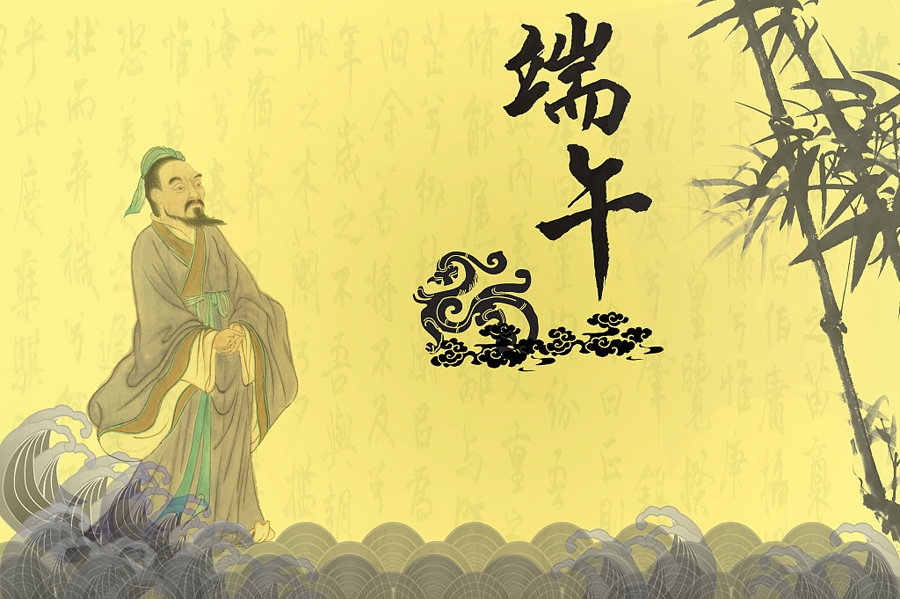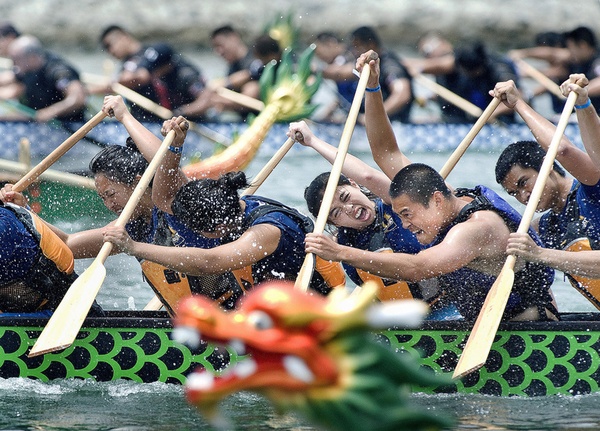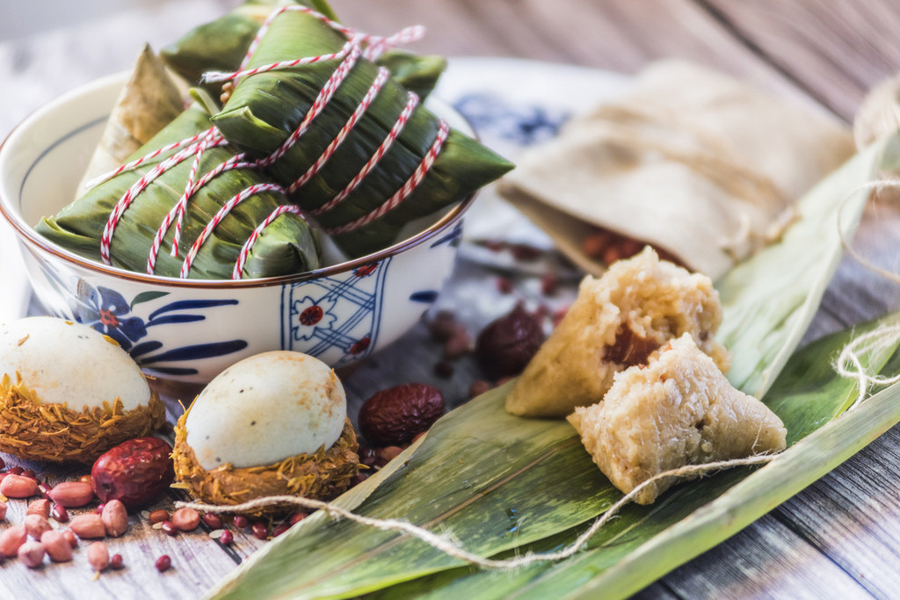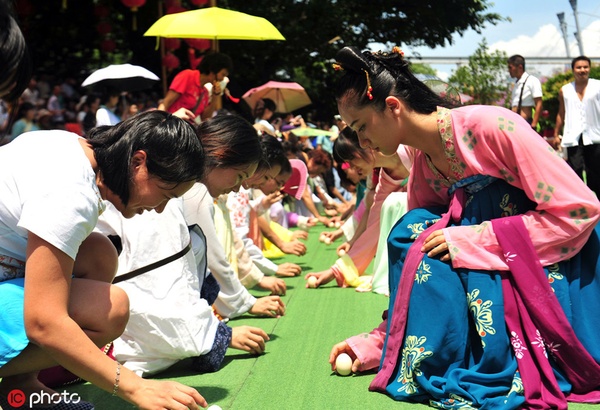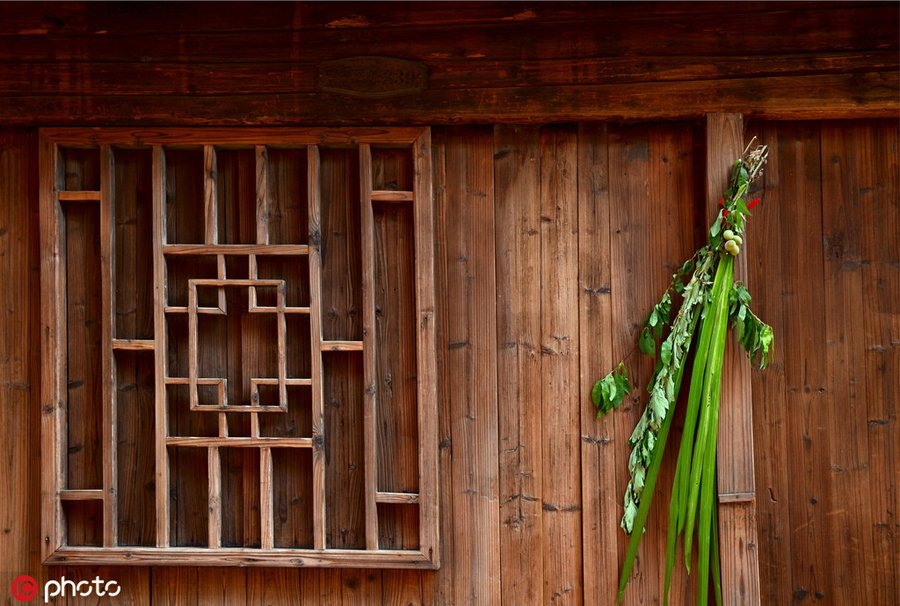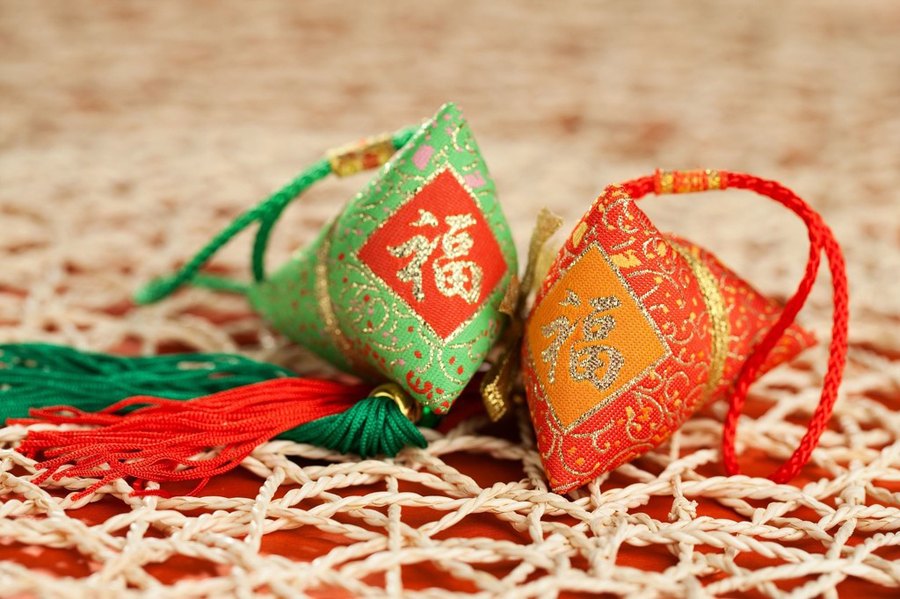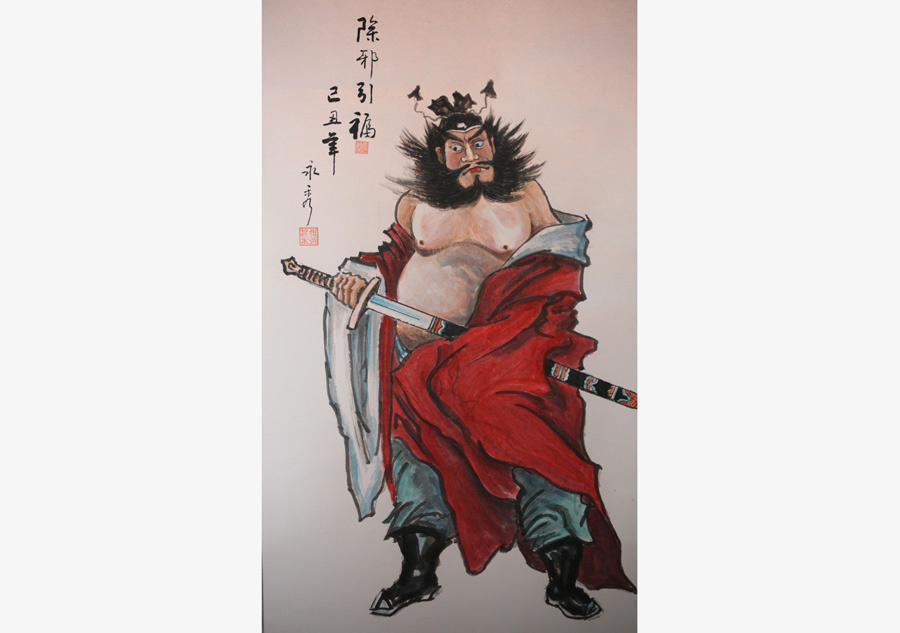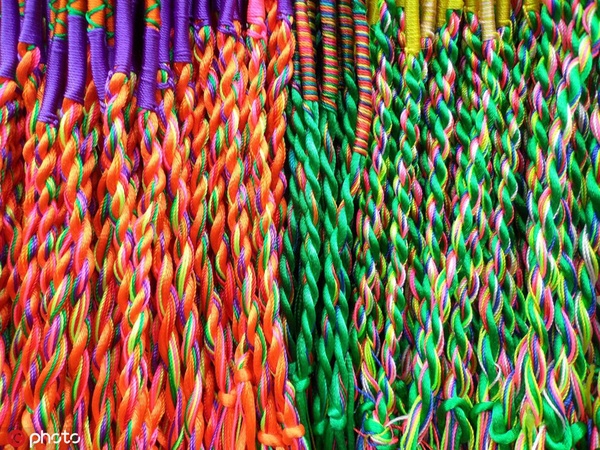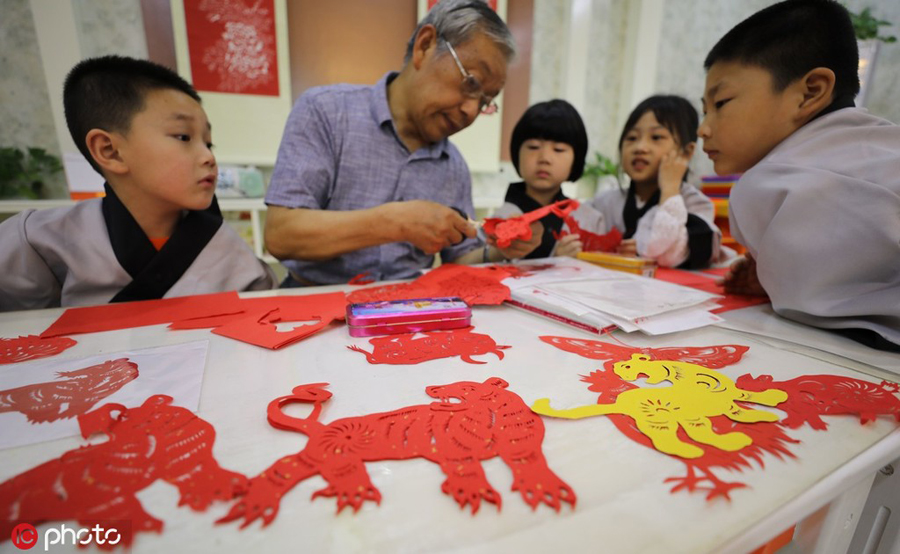[Photo/IC]
China's Dragon Boat Festival, or Duanwu, is just around the corner. Also called the Double Fifth Festival, the holiday, which falls on June 7 this year, is celebrated on the fifth day of the fifth month of the lunar calendar.
It is one of the oldest festivals, not only in China but also throughout the world, with a history of more than 2, 000 years. In 2006, the traditional festival was listed as part of China's national intangible cultural heritage. In 2008, it was recognized as a public holiday in the Chinese mainland.
The Dragon Boat Festival commemorates the death of Qu Yuan, a Chu state official and poet who lived during the Warring States Period(475-221 BC)before the reunification of China under the Qin Dynasty(221-206 BC). He was exiled after opposing his king's decision to ally with the neighboring state of Qin, and when Chu was finally conquered by Qin, he committed suicide by drowning in the Miluo River on the fifth day of the fifth lunar month.
The Chu people, who admired Qu Yuan for his loyalty and integrity, threw rice dumplings into the river to feed the fish so they would not eat the body of their poet hero. People then started dragon boat racing to scare off the fish.
Since then, the fifth day of the fifth month on the lunar calendar is celebrated as the Dragon Boat Festival. The following are some customs for the festival.
[Photo/IC]
Dragon boat racing
At the center of the festival are the dragon boat races. Competing teams drive their colorful dragon boats forward to the rhythm of the beating drums. These exciting races were inspired by the villagers'valiant attempts to rescue Qu Yuan from the Miluo River. This tradition has remained unbroken for centuries.
[Photo/IC]
Eating zongzi
Most Chinese festivals are tied to a particular food, and the Dragon Boat Festival is no exception.
A very popular dish during the Dragon Boat Festival is zongzi. This tasty dish consists of rice dumplings with meat, peanuts, egg yolks or other fillings wrapped in reed leaves. The tradition of zongzi is meant to remind us of village fishermen scattering rice across the water of the Miluo River in order to appease the river dragons and fish so that they would not devour Qu Yuan.
[Photo/IC]
Balancing eggs
It is said that you will be lucky in the coming year if you can balance an egg upright during the Dragon Boat Festival. The egg balancing competition will be held at noon in many places.
[Photo/IC]
Hanging auspicious leaves
The fifth lunar month is marked as a"poisonous"month in the Chinese farmer's calendar. This is because insects and pests are active during this summer month and people are more prone to catch infectious diseases.
During the Dragon Boat Festival, Chinese put mugwort leaves and calamus on the doors or windows to repel insects, flies, fleas and moths from the house. Those leaves have curative properties and can prevent an epidemic.
[Photo/IC]
Wearing scented sachets
On the Dragon Boat Festival, children normally wear scented sachets threaded with five-color silk string to ward off evil. A scented sachet is an ornament worn on the front of the dress. The sweet-smelling sachet contains cinnabar, realgar and aromatic herbs.
It is usually wrapped in a silk cloth and sometimes embroidered with exquisite patterns. Multicolor silk threads are attached to the sachet as decorative tassels. In some areas of China, a scented sachet is also used as a token between young lovers.
[Photo/IC]
Hanging an image of Zhong Kui
Zhong Kui is a famous exorcist. His picture, a fierce-looking male brandishing a magic sword, is hung in Chinese houses in order to scare away evil spirits and demons, especially during the Dragon Boat Festival.
[Photo/IC]
Tying five-color silk string
According to folklore, tying five-color silk string around wrists, ankles and the neck protects children from evil. Five-color string holds a special significance in China, as it is thought to contain magical and healing properties. Children are not permitted to speak while their parents tie the five-color string for them, nor are they allowed to remove it until the specified time. Only after the first summer rainfall can the children throw the string into the river. This is thought to protect children from the plague and other diseases.
[Photo/IC]
Driving away the five poisonous pests
According to Chinese custom, the"double fifth"is the hottest day of the month, when all the poisonous vapors are in the air, so every attempt is made to harmonize yin and yang so that danger and disease can be avoided.
It is believed that five kinds of poisonous pests would harm children's health, including a snake, centipede, scorpion, lizard, toad and sometimes spider. People will cut colorful silk into patterns of these five pests or paint them on red paper, and then paste the silk or red paper on the doors or walls of the bedroom, each impaled by a needle.
The five pests are also often embroidered on clothing, stamped on cakes, engraved on accessories and used for decorations. They are believed to have the power to drive away all pests and pestilence.
